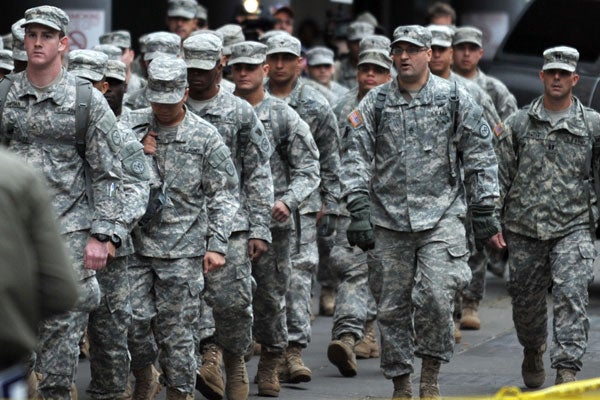Created by the members of the Massachusetts Bay Colony in 1636 to defend the earliest American community, the Army National Guard celebrates its 377th birthday today.
Originally a militia group made up of all able-bodied colonists over the age of 16, the National Guard in its current form wasn’t created until 1916. Its citizen-soldier members have fought and died in every major American conflict since 1637.
National Guard units have been essential to the war effort for the past 12 years in both Iraq and Afghanistan, while also answering the call to duty in local and state communities across the nation. Known as the country’s first responders, the National Guard has reacted quickly to disasters such as 9/11, Colorado forest fires, and Hurricane Sandy. These citizen-soldiers will continue to play an important role in future security efforts both at home and abroad.
The Guard’s responsibilities have grown since its inception. In addition to natural disasters, the Guard provides critical support in the event of a chemical, biological, radiological, nuclear, and high-yield explosive (CBRNE) attack. Even during natural disasters, these forces can come in handy as nuclear power plants and other industrial sites have the potential to release such hazardous materials. As new threats emerge and reductions elsewhere in the military create more security gaps, the nation will increasingly call upon its citizen-soldiers.
The National Guard has defended America at home and abroad for nearly 400 years. Yet, budget reductions under the Obama Administration threaten its ability to respond rapidly in the future, putting lives and national security at risk. These cuts have included large projected personnel reductions and a smaller commitment from the federal government. As we honor those Citizen-Soldiers who have protected the homeland for nearly 400 hundred years, we should also reflect on the constitutional obligation of Congress to provide for the common defense. They can do so by providing the Guard and other armed forces the resources they need to preserve national security.
Clark Irvine is currently a member of the Young Leaders Program at The Heritage Foundation. For more information on interning at Heritage, please click here.
